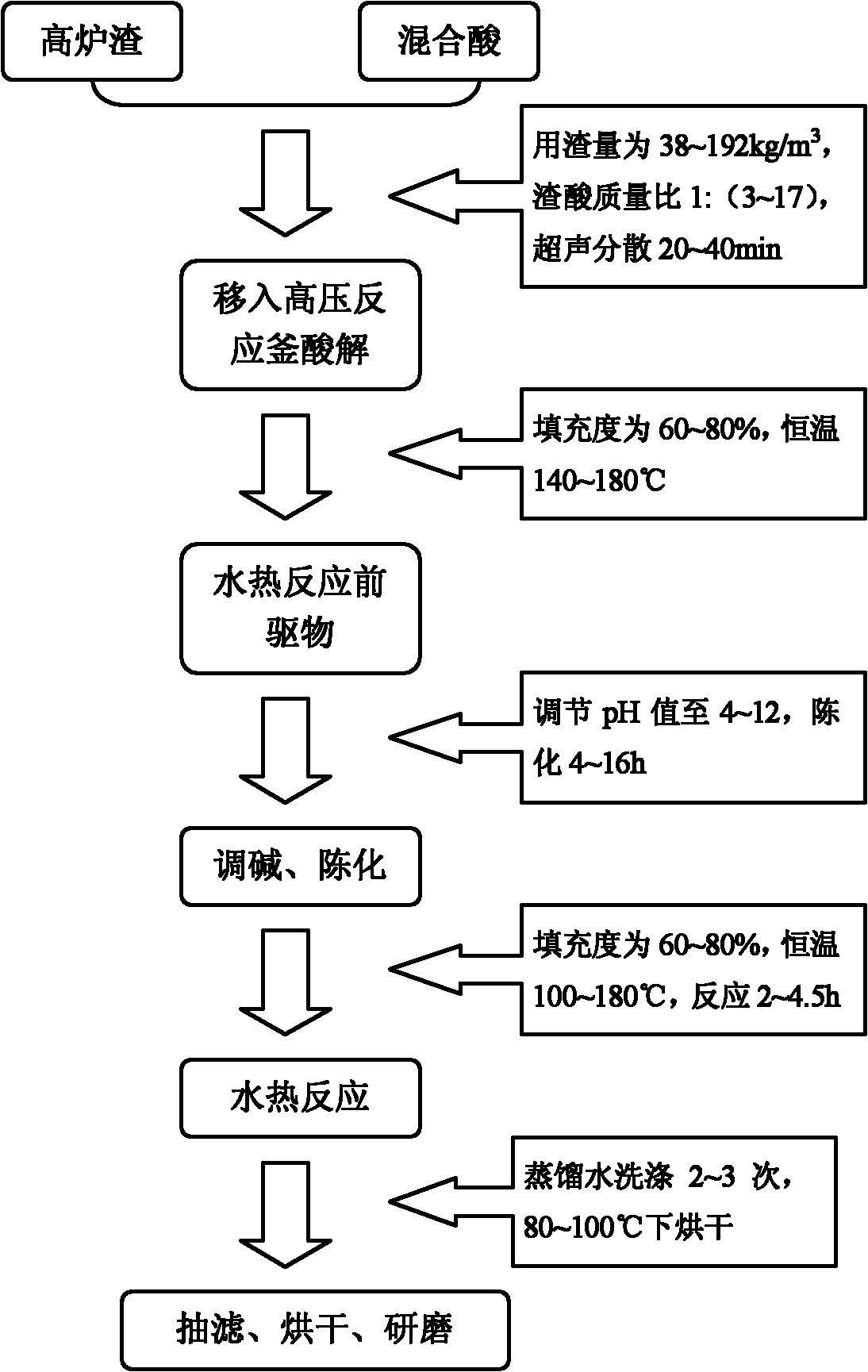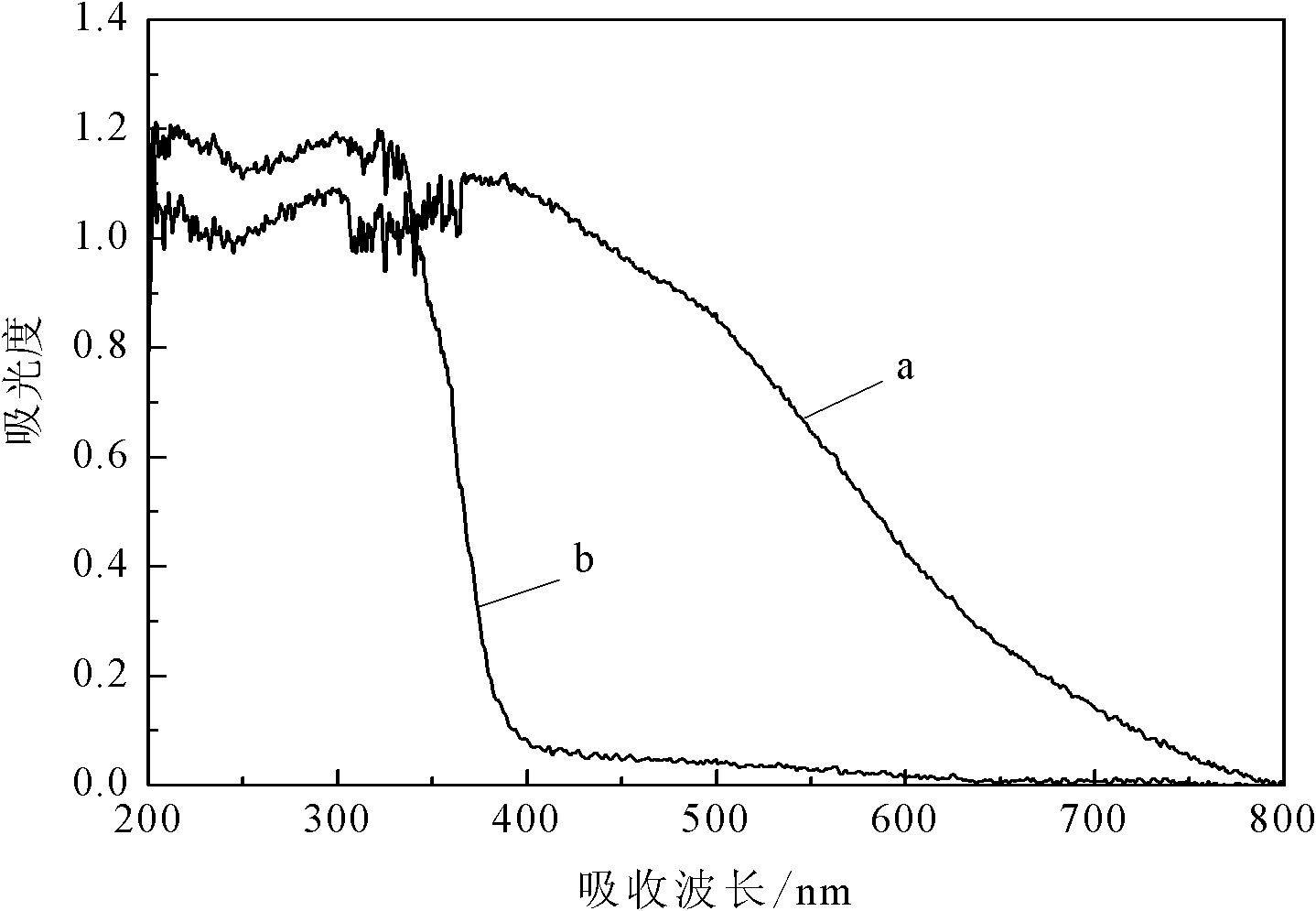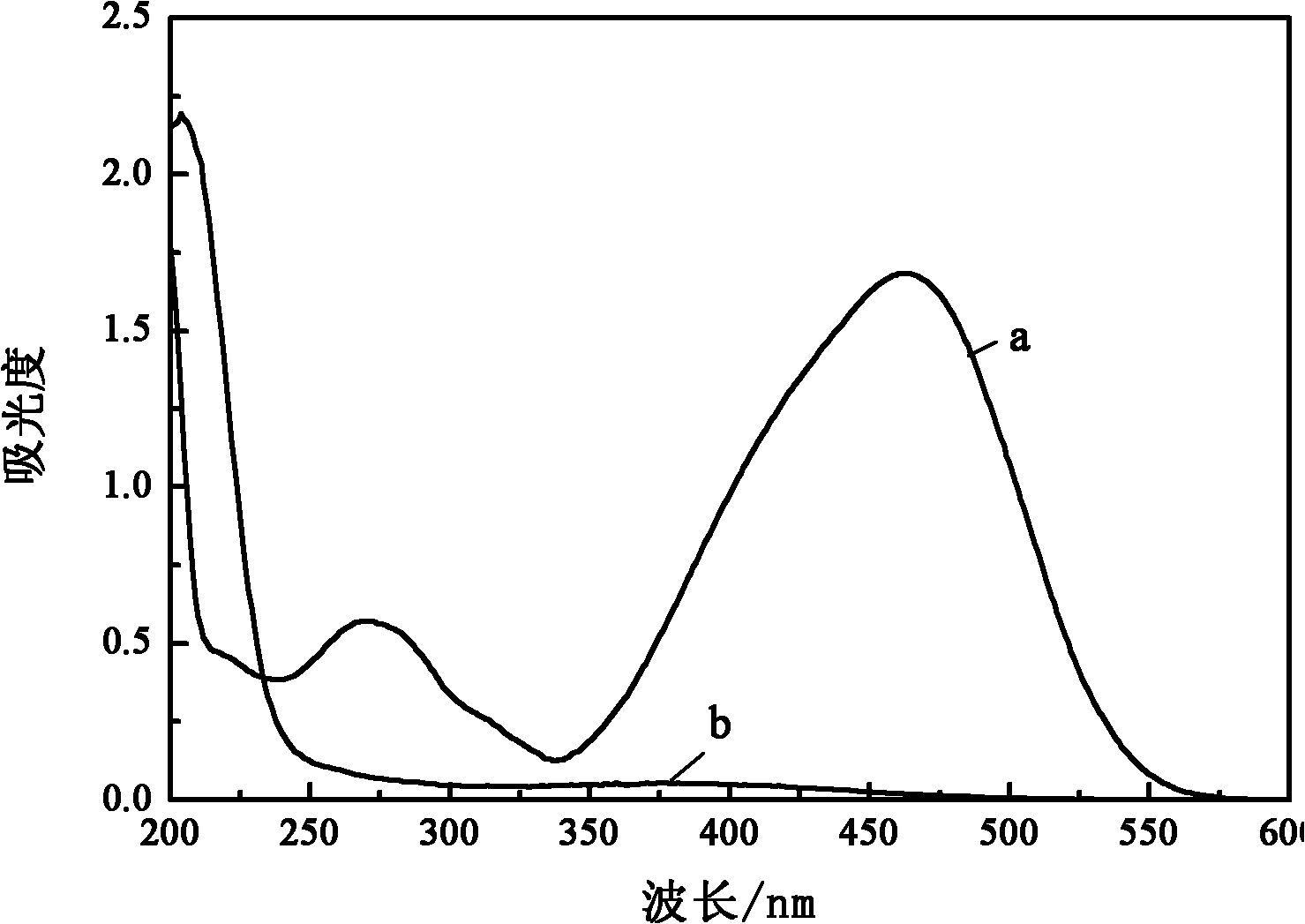Preparation process for preparing photocatalyst from blast furnace slag serving as raw material
A photocatalyst and preparation process technology, applied in physical/chemical process catalysts, chemical instruments and methods, chemical/physical processes, etc., can solve the problem of long preparation time, unfavorable clean production, and the quality of hydrothermal reaction precursors cannot be guaranteed. and other problems, to achieve the effect of promoting the improvement of photocatalytic activity, improving the efficiency of photocatalytic oxidation, and avoiding the problem of yellow smoke
- Summary
- Abstract
- Description
- Claims
- Application Information
AI Technical Summary
Problems solved by technology
Method used
Image
Examples
Embodiment 1
[0018] Main components of blast furnace slag: SiO 2 Is 5.21wt%, Al 2 O 3 7wt%, Fe 2 O 3 24wt%, CaO 18.2wt%, MgO 9.75wt%, Co is 0.008wt%, Cr is 0.20wt%, Cu is 0.001wt%, V is 0.23wt%, W is 0.009wt%, P is 1wt% , S is 0.003wt%, and the balance is unavoidable impurities.
[0019] After grinding the blast furnace slag with the above composition to below 200 mesh, mix it with the mixed acid (molar ratio of sulfuric acid and nitric acid is 1:1) at a mass ratio of 1:17, and disperse ultrasonically for 30 minutes and then move it into the autoclave. The filling degree is 60%, acidolysis is carried out at a constant temperature of 180°C for 10 hours, cooled to room temperature, and left to stand. Take out all the supernatant and bottom colloids as the precursors of the hydrothermal reaction;
[0020] Adjust the pH value of the hydrothermal reaction precursor to 4 with sodium hydroxide solution, stir it evenly, then age for 6h, transfer it into the autoclave with a filling degree of 80%, contr...
Embodiment 2
[0024] Main components of blast furnace slag: SiO 2 11.31wt%, Al 2 O 3 0.8wt%, Fe 2 O 3 28.6wt%, CaO 30.9wt%, MgO 18.55wt%, TiO 2 Is 0.95wt%, Co is 0.005wt%, Cr is 0.06wt%, Cu is 0.005wt%, V is 0.005wt%, W is 0.005wt%, P is 1.34wt%, S is 0.05wt%, and the balance is Inevitable impurities.
[0025] After grinding the blast furnace slag with the above composition to below 200 mesh, mix it with the mixed acid (the molar ratio of sulfuric acid and nitric acid is 1:0.4) at a mass ratio of 1:5, and disperse ultrasonically for 20 minutes and then move it into the high-pressure reactor. The filling degree is 70%, acidolysis is carried out for 8 hours under the constant temperature of 160℃, cooled to room temperature, and left to stand. Take the supernatant and the bottom colloid as the precursors of the hydrothermal reaction;
[0026] Adjust the pH value of the hydrothermal reaction precursor to 12 with sodium hydroxide solution, stir it evenly, then age for 16h, transfer it into the autocl...
Embodiment 3
[0028] Main components of blast furnace slag: SiO 2 27.08wt%, Al 2 O 3 21.9wt%, Fe 2 O 3 0.5wt%, CaO is 40wt%, MgO is 3.38wt%, TiO 2 0.42wt%, Co is 0.008wt%, Cr is 0.43wt%, Cu is 0.009wt%, V is 0.10wt%, W is 0.002wt%, P is 0.002wt%, S is 0.27wt%, and the balance is Inevitable impurities.
[0029] After grinding the blast furnace slag with the above composition to below 200 mesh, mix it with the mixed acid (the molar ratio of sulfuric acid and nitric acid is 1:2) at a mass ratio of 1:3, and ultrasonically disperse for 20 minutes and move it into the high-pressure reactor. The filling degree is 70%, acidolysis is carried out for 8 hours under the constant temperature of 160℃, cooled to room temperature, and left to stand. Take the supernatant and the bottom colloid as the precursors of the hydrothermal reaction;
[0030] Adjust the pH value of the hydrothermal reaction precursor to 12 with sodium hydroxide solution, stir it evenly, then age for 16h, transfer it into the autoclave wit...
PUM
 Login to View More
Login to View More Abstract
Description
Claims
Application Information
 Login to View More
Login to View More - R&D
- Intellectual Property
- Life Sciences
- Materials
- Tech Scout
- Unparalleled Data Quality
- Higher Quality Content
- 60% Fewer Hallucinations
Browse by: Latest US Patents, China's latest patents, Technical Efficacy Thesaurus, Application Domain, Technology Topic, Popular Technical Reports.
© 2025 PatSnap. All rights reserved.Legal|Privacy policy|Modern Slavery Act Transparency Statement|Sitemap|About US| Contact US: help@patsnap.com



